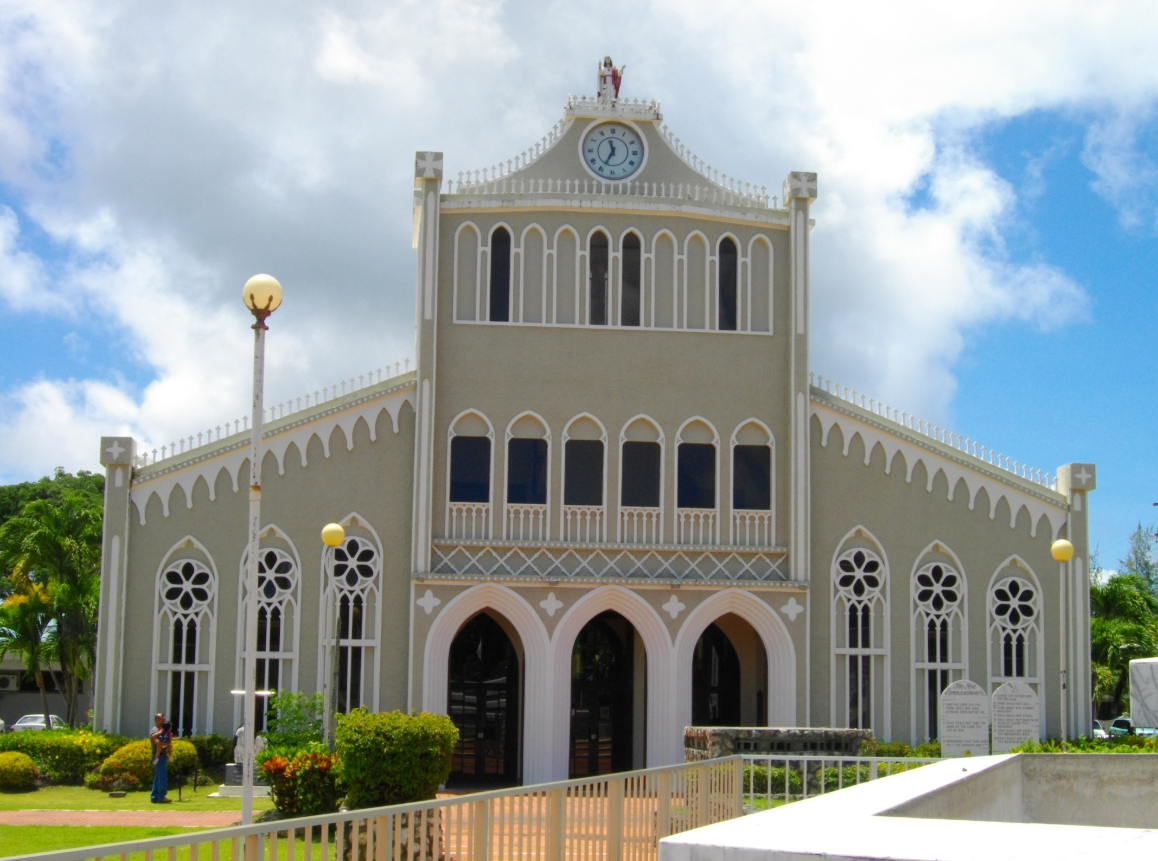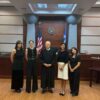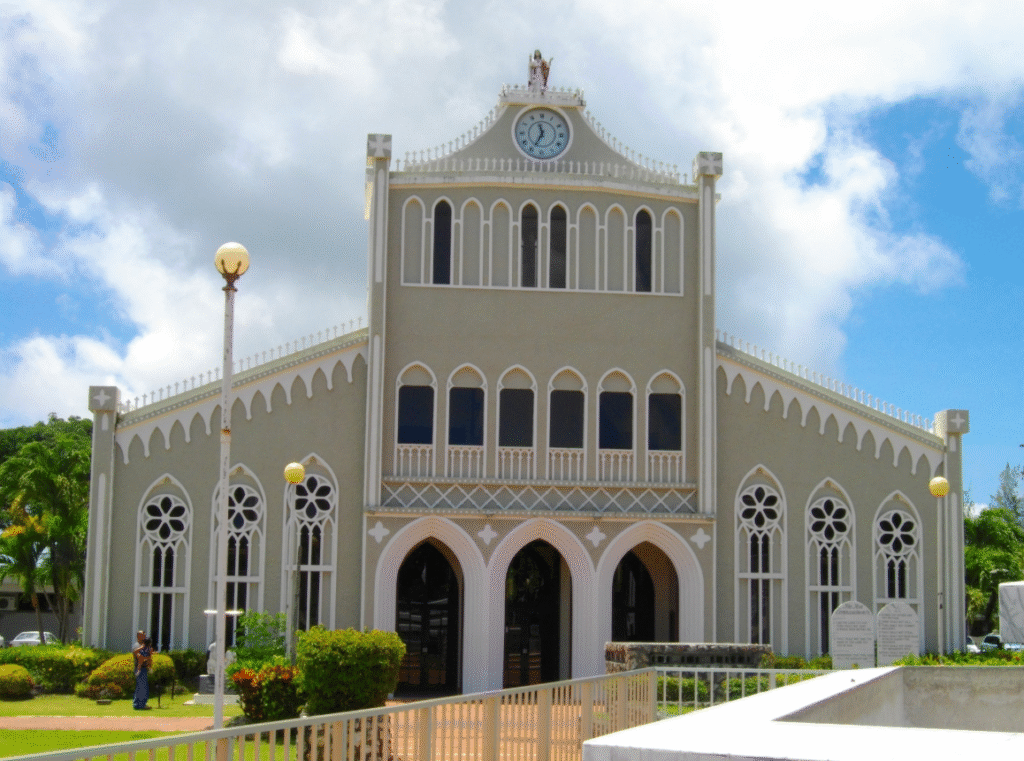
LAST week, I shared a letter to the editor, which has been shared with the Catholic Nuncio in New Zealand, titled “A Betrayal of Trust and Heritage: Where Are Our Indigenous Leaders?” expressing concerns about the diminishing role of Indigenous leadership and cultural heritage within our Catholic Church community. I raised issues of marginalization, the loss of traditional values, and external influences that threaten the cultural identity painstakingly built by our forebears.
In response, Archbishop Ryan Jimenez highlighted the Church’s mission to transcend ethnic boundaries, advocating unity and inclusiveness. While this perspective aligns with the broader Catholic vision, it does not address the heart of community concerns. Ryan’s response seems to sidestep the issues raised, offering a generalized message of love and unity that, while noble, falls short of the accountability and engagement our underserved community needs. This is not about rejecting diversity but preserving and empowering the voices of those who have built and sustained the Church on these islands for generations.
Pope Francis has often emphasized synodality and consultation, calling for shared discernment and dialogue that includes the voices of local clergy and laity (Synodality in the Life and Mission of the Church, 2018). These principles are vital in ensuring that leadership reflects the heart of the community it serves.
Sadly, no indigenous priest was invited to share leadership roles during Ryan Jimenez’s tenure. Could it be why there are no takers for religious vocations? This exclusion overlooks the love, trust, and commitment our late Bishop Tomas A. Camacho gave to nurturing local clergy who deeply understand our people’s cultural and spiritual needs.
True leadership listens, builds trust, and uplifts those who carry the legacy of faith and tradition. To honor our heritage and the teachings of Pope Francis, we must embrace inclusivity and ensure our leaders reflect the community they serve. Our diocese deserves no less.
The swift and opaque appointment of the new bishop for the Diocese of Chalan Kanoa raises further questions. Was this the final “gift” to a diocese that nurtured Archbishop Ryan and supported his growth, only to now see Indigenous leadership sidelined? The Diocese of Chalan Kanoa deserves leadership that listens, empowers, and respects the cultural foundations of this community. True unity is not achieved by ignoring problems but by addressing them with transparency, courage, and love. Our faith community cannot thrive on silence and avoidance; it requires open dialogue, accountability, and an unwavering commitment to honor the heritage entrusted to us.
This week, I studied Catholic websites for information on the selection of a bishop and canon law.
Is Canon 377 §1-2 establishes that the Pope has the sole authority to appoint bishops, but he is assisted by the Congregation for Bishops and the Apostolic Nuncio, who acts as the Pope’s representative in the region.
• Step 1. The Apostolic Nuncio’s role is to ensure the selection process considers the community’s unique cultural, social, and spiritual context. This initial phase typically spans the first 2-4 months after the vacancy and is the foundation for compiling the Terna, a shortlist of candidates for review by the Vatican.
• Step 2. The Apostolic Nuncio consults with local bishops, priests, and lay leaders to understand the diocese’s pastoral and cultural needs. A list of three candidates (Terna) is created and evaluated on qualifications in Canon 378 §1, such as faith, morals, pastoral zeal, leadership, and theological education. 2-4 months for consultations and evaluations.
• Step 3. The Apostolic Nuncio submits the Terna to the Vatican’s Congregation for Bishops, which reviews candidates and votes on recommendations to the Pope. Understanding the local cultural context is crucial for indigenous appointments, in line with Canon 383 §1, which emphasizes respecting cultural diversity while promoting unity. The review process typically takes 2-4 months.
• Step 4. The Congregation for Bishops presents their recommendation to the Pope, who can choose from the Terna candidates or select someone else. Canon 375 §1-2 highlights that bishops should govern and sanctify the Church while understanding their diocese’s cultural and social needs, especially in indigenous communities. Depending on the Pope’s discernment, the process may take 2-3 months.
The United States Conference of Catholic Bishops states, “It often takes six to eight months — and sometimes longer — from the time a diocese becomes vacant until a new bishop is appointed”. (https://www.usccb.org/offices/general-secretariat/appointing-bishops). 8-12-month timeframe is quoted in Vatican guidelines on episcopal appointments, Apostolorum Successores (Directory for the Pastoral Ministry of Bishops), 2004.
Appointing a bishop is meant to be deliberate and prayerful, often taking 1-2 years to ensure the right leader is chosen. It took six years for Ryan to become a bishop and 15 months to take over in Agaña. Why are we rushing to install someone new in Chalan Kanoa when our diocese is still recovering from feeling abandoned under Ryan’s leadership? I venture to think and feel some steps were circumvented
This haste disregards the trust and devotion of the faithful who have carried this Church through generations. Leadership should arise from careful discernment, honoring the voices and heritage of our people. We deserve a leader chosen with respect and love — not out of practicality. Let this not be a moment of rushing but of reflection, healing, and unity for our diocese. We must demand better.
In closing, the Catholic Diocese of Chalan Kanoa deserves leadership that reflects its people, respects its heritage, and upholds the traditions that have been the cornerstone of our faith through centuries of trials and tribulations. Despite the call to “forget the past,” as Cardinal Tagle suggested, our past sustains us. Through the beliefs, customs, and traditions nurtured by GREAT leaders like our late Bishop Tomas A. Camacho, we have persevered through colonization and cultural purges.
The Church stood with the Chamorro and Carolinian people when survival depended on faith and prayer. Now, we must stand firm in preserving this legacy by ensuring that Indigenous voices are heard and given the leadership roles in our Catholic Churches as they have earned through decades of commitment and sacrifice.
The appointment of a bishop is not a mere formality or political maneuver — it is a sacred, prayerful process that must honor Canon Law and the principles of inclusivity and representation. In dioceses like ours, where indigenous heritage is inseparable from the faith, the integration of local voices and traditions is essential. Anything less risks alienating the faithful and eroding the trust that has sustained this diocese for generations.
To move forward faithfully, we must honor the past and respect the people who built this Church. The Diocese of Chalan Kanoa cannot thrive without leaders who understand and embody this community’s cultural and spiritual fabric. It is not too late for the Church to correct its course and reaffirm its commitment to the people who have clung to its sanctuary through centuries of adversity. Respecting the voices of the faithful is not only an act of justice, but it is the very foundation of the Church’s mission.











